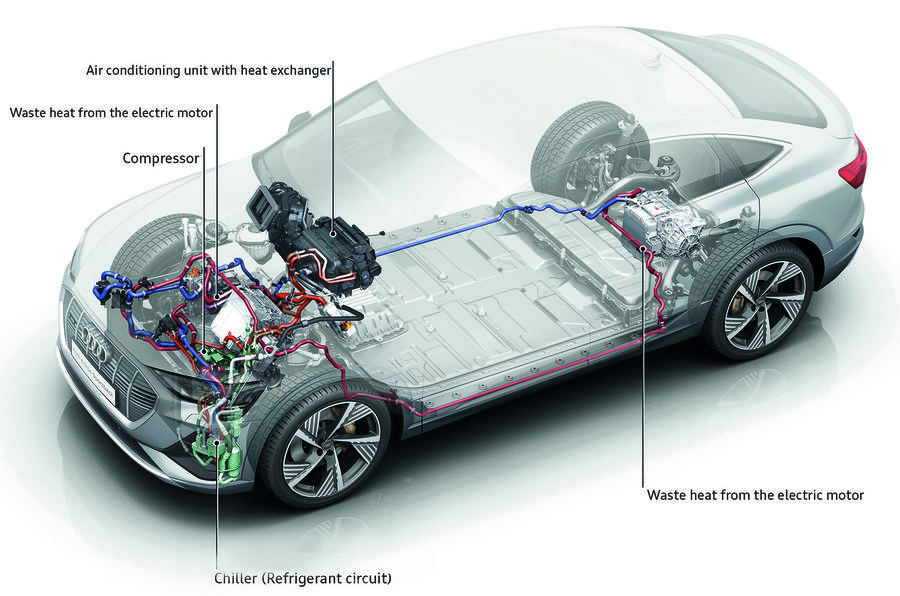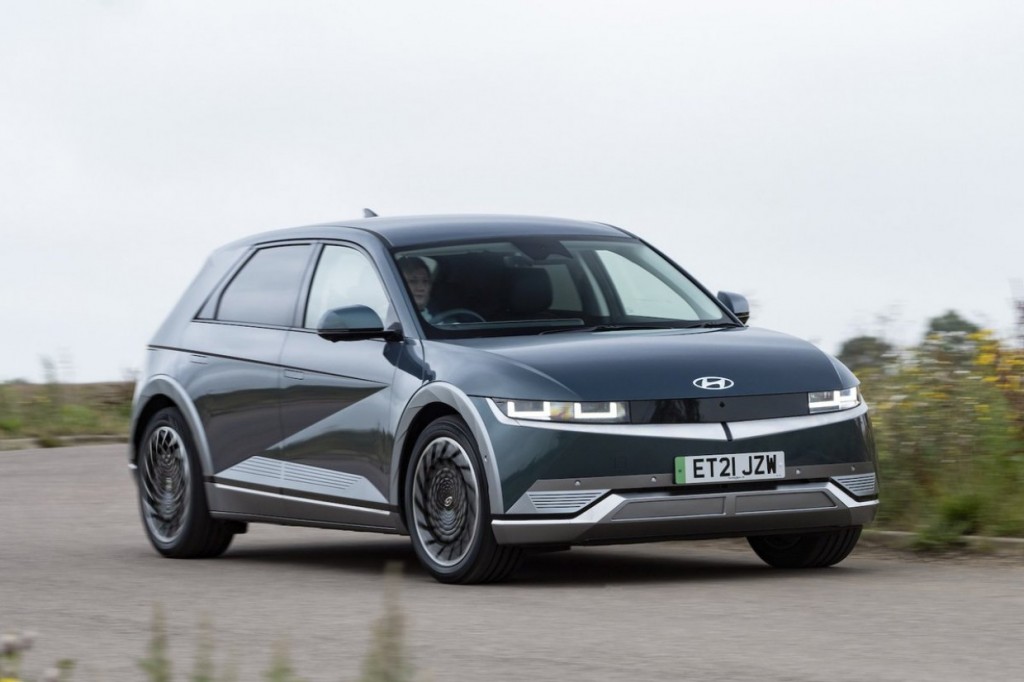
Electric cars have ushered in a new era of innovation, with brands regularly updating vehicles to feature all kinds of modern technology.
That includes lots of technology to improve the range of modern EVs, such as regenerative braking. That takes the kinetic energy that would be lost by a car slowing down and feed it back into the battery.
The latest electric vehicle news in your inbox: get our FREE newsletter
One of the most notable bits of new technology helping to boost the range of an EV – particularly in winter – is a heat pump. Now an optional extra on many EVs, heat pumps retain heat from the batteries and use it to increase the range of an EV.
Here we explain how heat pumps work, how they benefit your electric car and how much they cost as an optional extra.

How does a heat pump work?
Motors, whether electric or combustion engine, produce heat when they're used. That's effectively wasted energy, so in an attempt to make the most of it combustion engine cars use a small amount of it to help run a car's heating and ventilation.
By comparison, EVs are just too efficient for their own good: while the motors and batteries do produce excess heat that can harm the range, there isn't enough to be used for the ventilation system. So EV drivers either go cold, or have to draw extra power from the battery to operate a fan heater. Not ideal.
That's where a heat pump comes in. It’s effectively a refrigerator but in reverse: its function is the opposite of the one found in your kitchen.
A household fridge contains refrigerant gas which becomes hot when compressed. Once compressed the gas is transported around a number of tubes to the condenser.
The condenser then radiates the heat out, thus cooling the refrigerant gas which then travels into a grid called the evaporator. Because the evaporator is larger than the condenser, the pressure drops and the liquid refrigerant is evaporated. The temperature then drops and the fridge is cooled.
An EV heat pump draws air in from outside, compresses it, then uses the heat from the condenser to raise the temperature in either the battery or the car's interior.
Reversible heat pumps can also warm, as well as cool, the battery. If cooling, any excess heat from the battery can be sent to the inside via the cabin heater.

Does it increase the range of an EV?
Adding a heat pump has many benefits, but most importantly is its ability to increase the range of your electric car, particularly during the winter months.
When an electric car is switched on in winter months, it takes longer for the battery to warm up which reduces efficiency. The lithium-ion batteries in an EV rely on chemical reactions to store and create electricity. Cold weather slows these reactions down resulting in the drop in performance and range.

It is estimated that EVs range drops by around 10 per cent in winter, even before you account for using extra energy for cabin heating. Heat pumps can really help reduce that drop-off.
During our winter real-world range test – conducted in partnership with sister brand What Car? – the electric cars fitted with a heat pump fell short of their official range by an average of 25.4 per cent, while those without suffered a 33.6 per cent deficit.
Cars with heat pumps also proved more efficient, averaging 3.2 miles/kWh, compared with 2.9 miles/kWh for ones without.
In addition, heat pumps are often programmed to be remotely controlled by your smartphone, allowing EV owners to heat their car before they set off on a journey. And if you’re plugged into the mains electricity you won’t drain the battery either.
Do heat pumps come as standard?
Heat pumps becoming more popular, and some brand such as Tesla, Porsche and BMW offer EVs with such devices as standard. Some manufacturers offer a heat pump as an optional extra, and frustratingly they can be a pricey addition.
The Hyundai Ioniq 5, for example, offers a heat pump as an optional extra for £995. Skoda asks for £1025 for a heat pump for the Enyaq iV. It is worth noting that heat pumps are often included in the kit list for higher trim levels of many models.

Even if they are an expensive option, a heat pump is worth considering: they have extensive benefits, from improving efficiency, to increasing the range of your EV.
Whether you’re thinking of making the switch to an EV or about to order your new set of zero-emission wheels, we’d recommend adding a heat pump for peace of mind.
READ MORE
Subscribe to the Move Electric newsletter
e-CARS
Ten electric cars we're excited for in 2023
Getting an EV sideways: how easy is it to drift a Kia EV6 GT?
Q&A: Jaguar Racing's Sam Bird and Mitch Evans on Formula E's new era
e-BIKES
Ten electric bikes we're excited for in 2023
Can you get fit using an electric bike?
e-MOTORBIKES
Ten electric motorbikes we're excited for in 2023
Super Soco TC Max electric motorbike review
Cake and Polestar team up for new special edition Makka e-motorbike
e-SCOOTERS
Planned laws to legalise private e-scooters face delay
Five key takeaways from the rental e-scooter trials report
Which train firms have banned e-scooters from their services?
e-WORLD
Move Electric's best features of 2022: lap records, tuk-tuks… and sausage rolls
Volvo Trucks keeps on electric trucking with three new models
VIDEO: Watch Move Electric's epic e-race across London
